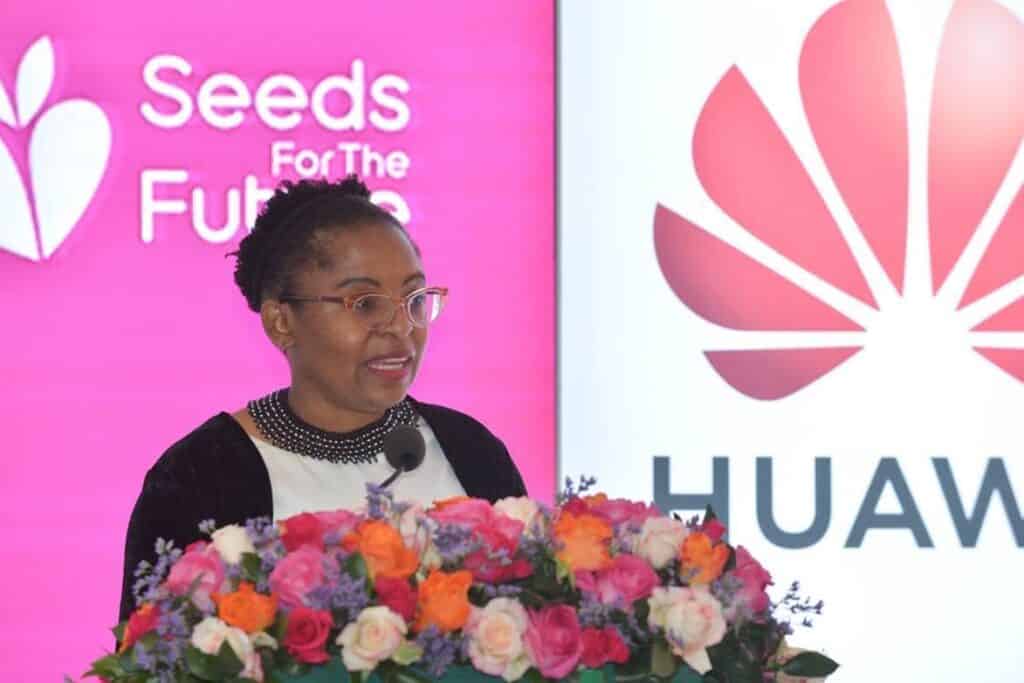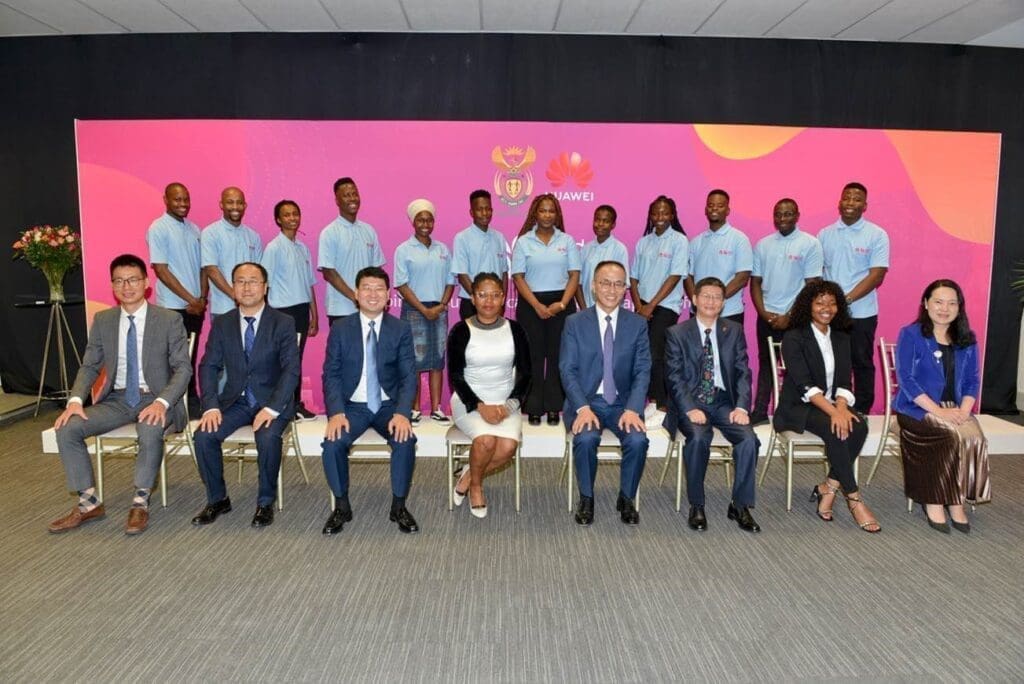Huawei and the Department of Communications and Digital Technologies (DCDT) has kicked off the 2021 edition of their Seeds for the Future course, aimed at preparing ICT students for the future of work.
Now in its sixth year, the course aims to inspire local talent, enhance knowledge sharing, promote a greater understanding of and interest in the ICT sector, and encourage participation in the digital community.
In addition to courses on latest technologies of 5G, Cloud, AI and IoT, students are also introduced to Chinese culture and language, which aims to foster a cross cultural understanding. In this year’s curriculum, the focus is on getting students to think about how to use technology to address social and environmental issues under Huawei’s Tech4Good programme.
The event was attended by Chinese Ambassador to South Africa, Chen Xiaodong, DCDT Minister Khumbudzo Ntshavheni, Huawei SA CEO, Spawn Fan along with the 12 Seeds for the Future 2021 candidates.
With the pace of technological advancement having accelerated during the COVID-19 pandemic, both Huawei and the DCDT felt it’s important to empower tomorrow’s young technology workers to use technology to solve both local and global issues. Students will also learn problem-solving and leadership skills through teamwork and deepen their personal mission and sense of social responsibility.


Khumbudzo Ntshavheni, Minister of Communications and Digital Technologies
“Since the Seeds for the Future initiative was started in 2016, it remains important for our path of bridging the digital divide,” said Khumbudzo Ntshavheni, Minister of Communications and Digital Technologies. “As we open the Seeds for the Future programme, the technologies we deemed technologies for the future are here with us in full force.”
The Minister noted that as global leaders in new technologies, Huawei’s contribution was very valuable, not only for the individual students, but for the South African economy.
“I hope the students that are the beneficiaries of this initiative appreciate the value of this programme and act like true seeds and will multiply themselves for the benefit of our country, the SADC region, and our continent.”
“The technologies driving the Fourth Industrial Revolution (4IR) can be quite difficult to understand”, said Spawn Fan, CEO, Huawei South Africa, “but as long as we keep learning, this will not be a problem.”
As Fan pointed out, if South Africa was to really take advantage of the emerging technologies driving the 4IR, it needed people with the necessary skills and leadership to properly utilise them. That, he added, made programmes like Seeds for the Future critical.
“We want to encourage and develop a sense of social responsibility and foster innovation in our young people. We want them to think about how to use technology to solve complex global issues, like climate change for example.”
Participants in the Seeds for the Future course, which bridges the gap between academia and the working world, are drawn from a variety of universities, including those in previously disadvantaged areas. It also favours black, female candidates and aims for a minimum 50-50 gender split.
Chinese Ambassador to South Africa, Chen Xiaodong spoke about how China had used technology to enable an almost fully digital society, driving a new stream of economic growth.
“The world is witnessing a new generation of digital technology which is bringing about fresh change in society and industry,” he said. “During COVID-19 the digital economy had become an important driving force in the global economic recovery. According to the World Bank, the digital economy accounts for 15% of world GDP, while China’s digital sector accounts for 39% of its GDP.”
“We firmly support Huawei in showing social responsibility and engaging in win-win cooperation,” he added. “China will continue to cooperate with South Africa in advancing development with the digital economy at the core.”
Computer Science student from the University of Limpopo, Vhuthuhawe Munyai, spoke about his expectations for participating in this year’s program.
“During the Huawei Seeds for the Future Program, I am expecting to learn more about the technology in networking, which is 5G, AI and Cloud computing. With the introductory Huawei courses I have attended online, I have already learnt a lot and am still eager to learn and grow more in this field.” He added that ICT held much promise for the development in his hometown of Makhado in Limpopo, and he was keen to be part of the solution.
Between 2016 and 2019, 40 students travelled to China for the annual program. But in 2020, due to the global pandemic lockdown, the course was held online, and Huawei was able to expand the number of candidates to 50. Including 2021, over 100 students would have benefited from Huawei’s flagship global CSR program.
The eight day course started on 15 November and ends on 22 November.

